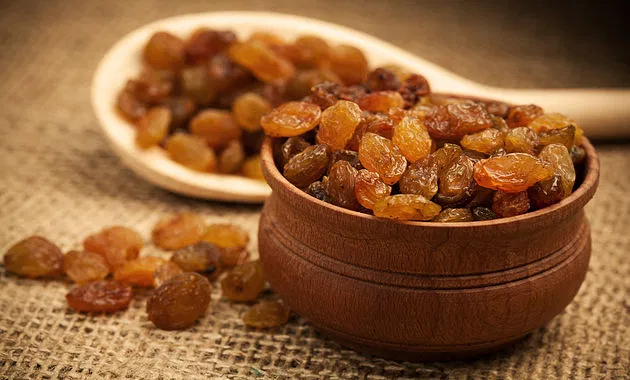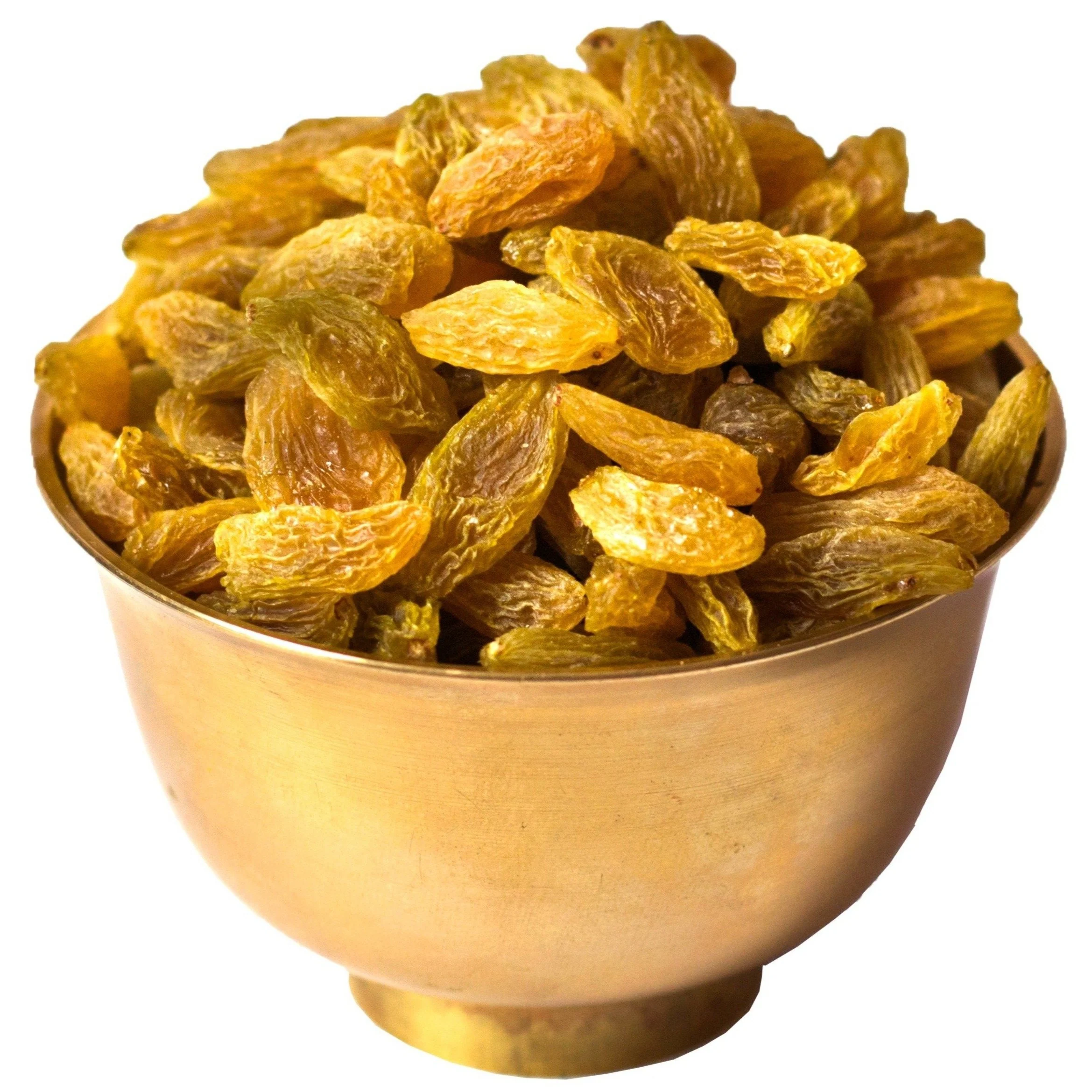
What is Kishmish?
Kishmish is a term used primarily in South Asia to refer to raisins, which are dried grapes. Kishmish can be made from various types of grapes, and it is a popular ingredient in many dishes, including desserts, rice preparations like biryani, and snacks. It is known for its sweet taste and is often used to add natural sweetness to foods.
Medicinal Properties
In a medicinal context, kishmish (raisins) is considered beneficial due to its rich nutritional content. It is packed with iron, which helps treat anemia, and its high fiber content aids in digestion, helping to relieve constipation. Kishmish is also a source of antioxidants, which can help combat oxidative stress, support heart health, and improve immune function. The natural sugars in raisins provide a quick energy boost, and they contain compounds that may help regulate blood pressure and support bone health due to their calcium content.
However, like all dried fruits, kishmish should be consumed in moderation, as it is calorie-dense.
Types
There are several types of kishmish (raisins), categorized based on the variety of grape used and the drying process. Here are the common types:
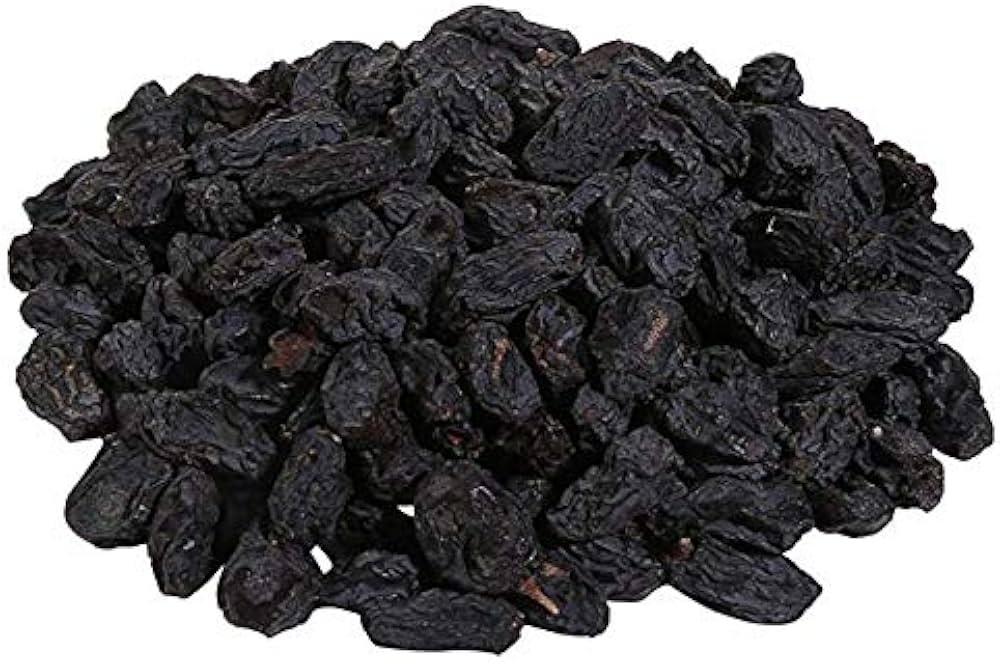
Black Kishmish (Black Raisins):
- Made from black or dark-colored grapes.
- Dried naturally in the sun or mechanically.
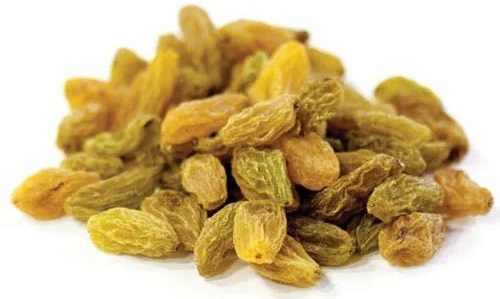
Golden Kishmish (Golden Raisins):
- Made from green or yellow grapes.
- Treated with sulfur dioxide and dried to retain a golden color.
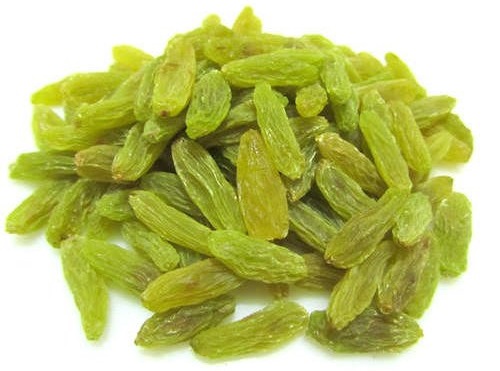
Green Kishmish:
- Typically made from seedless green grapes.
- Long and cylindrical in shape.
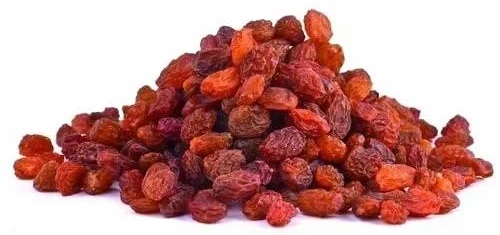
Red Kishmish (Red Raisins):
- Made from red grapes, often sun-dried.
- Known for their rich, tart-sweet flavor.
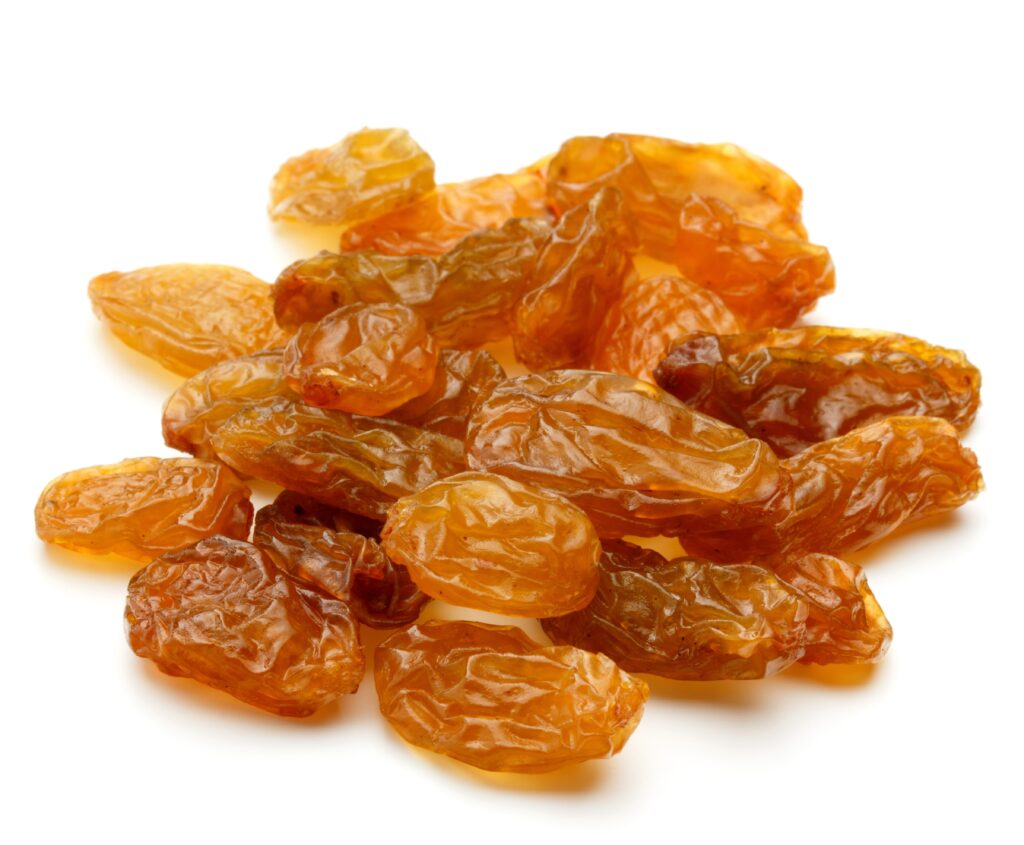
Sultanas:
- Made from a variety of small, seedless green grapes.
- Sweeter and juicier compared to other types of raisins.
Potential Health Benefits of Raisins
Adding raisins to your daily diet in moderation can offer a host of health benefits. Let us explore some of the Kishmish health benefits.
Aid in Digestion
Kishmish (raisins) are excellent for digestion due to their high fiber content, which helps prevent constipation by adding bulk to the stool and promoting regular bowel movements. The soluble fiber in raisins absorbs water, softening the stool and making it easier to pass. Additionally, kishmish acts as a prebiotic, supporting the growth of healthy gut bacteria, which plays a key role in maintaining overall digestive health. This makes kishmish effective in alleviating digestive issues like bloating and improving gut function.
Heart Health
Kishmish (raisins) are great for heart health because they have antioxidants that help reduce inflammation and protect the heart. They are high in potassium, which helps manage blood pressure, and they contain fiber that lowers bad cholesterol. These factors work together to keep your heart healthy and reduce the risk of heart disease.
Improves Eyesight
Raisins have antioxidants like Vitamin C and A, which can protect the eyes from oxidative damage caused by free radicals. They also have a compound called polyphenol that reduces inflammation and keeps eyes healthy.
Eating raisins in moderation daily and also getting regular eye check-ups can help you maintain good vision.
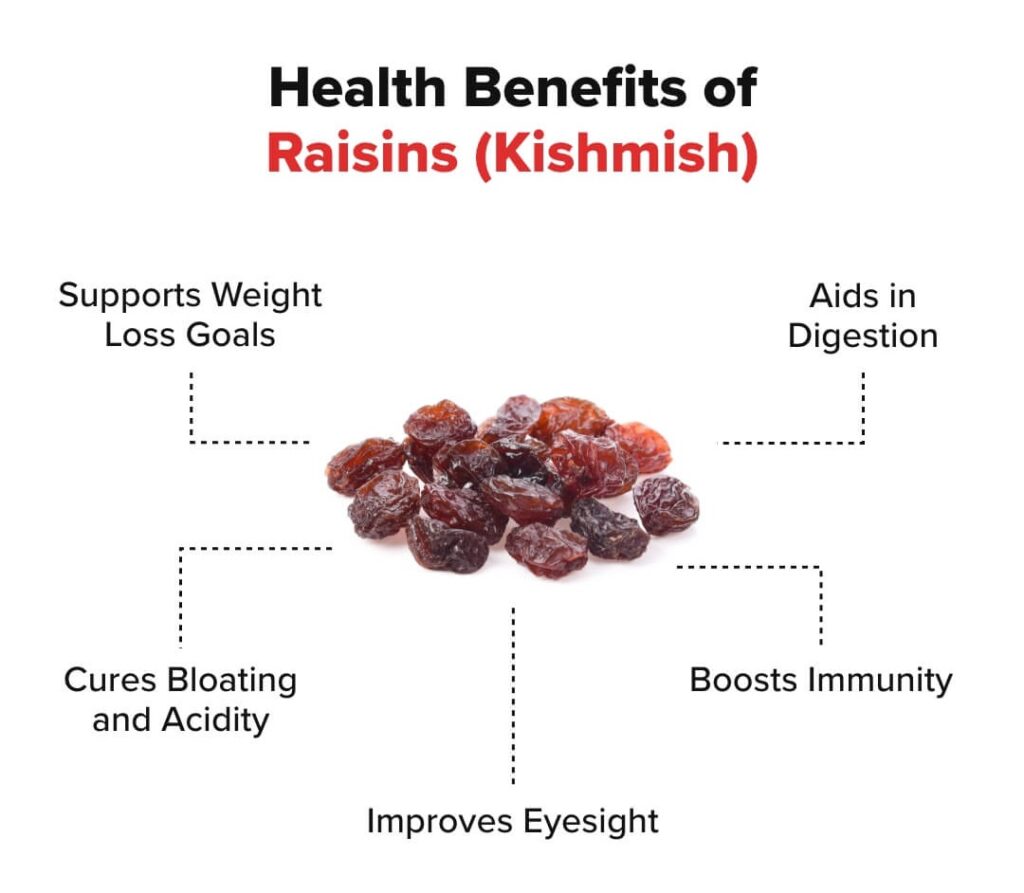
Bone Health
Raisins are full of calcium, which is an important component of bone strength. They are also rich in boron, a mineral that is necessary for bone formation. If you want the best Kishmish benefits, you must soak them before eating. They can help your body absorb nutrients better and improve bone density.
Boost Immunity
Kishmish can help boost your immune system because of the nutrients present in it. They contain antioxidants like Vitamin C and polyphenols that fight harmful free radicals in the body and reduce oxidative stress in the body.
Raisins also have iron and other minerals that support your immune system by making antibodies. The fiber content improves gut health which is important for the immune system. Eating a few raisins every day helps you to boost your immune system.
Helps in Healthy Skin
There are many benefits of raisins for skin. They prevent damage to the skin cells and prevent wrinkles and sagging skin. Raisins can also be used for skin whitening and lightening treatments. They nourish the skin from the inside out and also make it shiny. Eating raisins regularly can help you manage skin conditions like psoriasis.
Helps in Healthy Hair
Eating raisins can help you keep your hair healthy and shiny. They promote hair growth and improve the cells in your hair follicles. Black raisins are particularly helpful for hair loss. They contain vitamin C, which prevents scalp inflammation and cell damage. Regularly eating them can also prevent dandruff, flakiness, and itchy scalp.
Regulates Blood Pressure
Kishmish (raisins) can help manage blood pressure due to their high potassium content. Potassium helps balance sodium levels in the body, which can reduce strain on the blood vessels and lower blood pressure. Additionally, the antioxidants in kishmish help protect blood vessels from damage, further supporting healthy blood pressure levels.
Weight Management
Kishmish (raisins) can aid in weight management in a few ways. Despite being calorie-dense, their fiber content helps you feel fuller for longer, reducing overall hunger and potentially leading to fewer calorie intakes. The natural sugars in raisins provide a quick energy boost without the need for high-calorie snacks, and their nutrients support a balanced diet. Consuming them in moderation can help manage cravings and support weight control.
How to use?
Kishmish, also known as raisins, are a sweet and convenient snack enjoyed worldwide. Kishmish is more beneficial when consumed after soaking for whole night in water and consumed as a first thing in morning. It must not be consumed in excess amount and always consumed after consulting a professional doctor.
Side Effects of Raisins

Eating raisins is generally safe, but there are rare reports of raisin allergies, especially in young children. Symptoms may include the following:
- Itching of the mouth
- Nausea
- Vomiting
- Diarrhea
- Wheezing
- Breathing difficulties
- Fever
Excessive consumption of raisins can lead to carbohydrate overload. If you notice any adverse effects after eating raisins, you should seek immediate medical attention.



